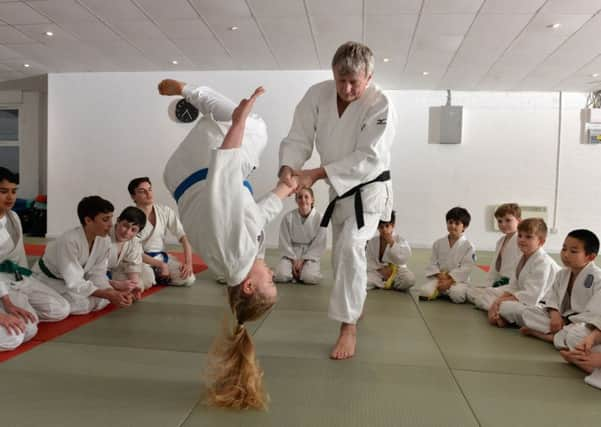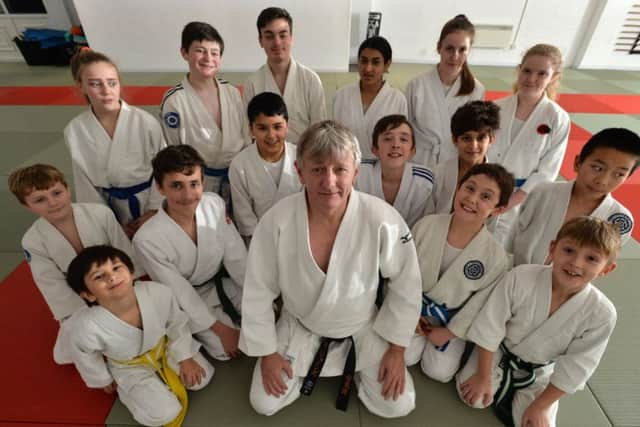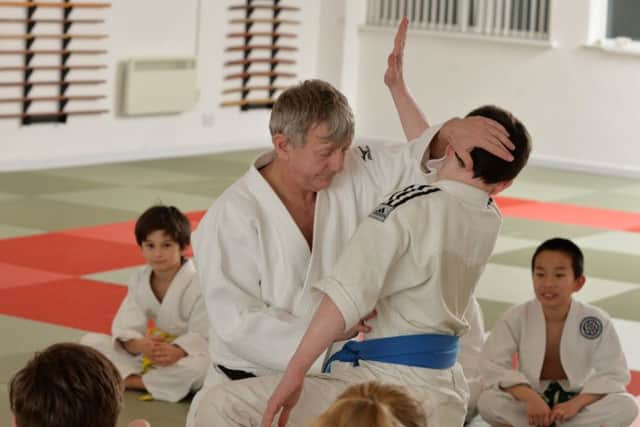Big Interview – Veteran Bob Jones still spreading the martial arts message in Leeds


Bob Jones and his aikido team had embarked on their first trip to Japan, the spiritual and maternal home of martial arts. Britain’s maiden appearance at the Japan National Games in 1985 was crucial in the sport’s development, with Bob at the epicentre for the decades that followed.
From first learning his craft in judo in the mid-1960s, Bob became fond of a form of martial arts known as aikido in his early teens, and went on to become manager of the national team for a decade, ending in 1997.
Advertisement
Hide AdAdvertisement
Hide AdTraditionally enjoyed by the nobility of Japan, aikido merges two forms of martial arts: aikijutsu and jiu jitsu. It immediately appealed to Bob, who is up for an Outstanding Contribution to Sport award at the Leeds Sports Awards at the end of February.


“Jiu jitsu has the basis that the partner is unarmed so the samurai and the nobles practiced aikijutsu,” said the 63-year-old.
“The peasantry practiced jiu jitsu.
“As they started to develop and divide then judo became close-quarter wrestling, karate became the more punching and kicking, aido and kendo became the weapons and aikido became fundamentally the joint-locking.
“We do throwing but it’s usually using the weaker parts of the joints where the armour had movements, in the wrist, elbow, shoulder, neck. That’s what aikido really goes for.


Advertisement
Hide AdAdvertisement
Hide Ad“You can imagine someone in armour coming and attacking you and if you weren’t wearing armour then you’d be looking for the weaknesses, such as those joints.
“It’s been adapted for kids so we don’t actually do that sort of stuff with kids. Police restraint techniques used to be based on it.”
That tournament in 1985 was seen as a turning point for the sport in Britain, giving the federation belief that they could compete on the international stage after recording a silver medal in the men’s team event.
Bob was at the heart of this and says the visit to Japan, where martial arts has become a way of life, was the start of the aikido movement in the UK.
Advertisement
Hide AdAdvertisement
Hide AdIt grew during Bob’s 10-year spell as manager of the national team, which involved taking training sessions, assessing squad strengths and the admin side of things, as well as developing aikido for sport both in Leeds and nationally.
“I came back [from Japan] and went to my organisation and said if my team can do this then imagine what would happen if we got all the best in the country together and all went as a [British] group,” he added. “They said okay, go on then. We went backwards and forwards to Japan, America, Australia and all over the place, competing at these World Championships.
“It showed us the possibilities that, on one side, the Japanese were vulnerable and weren’t this elite country that did all martial arts and were absolutely supreme.
“It laid the foundations for the first Aikido World Championships in 1989 because I talked to the Japanese saying ‘why don’t we do a world championship?’. “It also gave us that insight into the culture and background of what Japan is actually like and how hard they work and how disciplined they are.
Advertisement
Hide AdAdvertisement
Hide Ad“That’s just like work, social life, everything is highly structured, highly disciplined and highly controlled.”
Leeds has been renowned in the aikido world for developing world-class talent.
Indeed, the two current world champions and managers of the national team, Laura Beardsmore and Paul Carr, hail from the city and help train the next crop of talent that is coming through Ichiban Leeds, a relatively new martial arts dojo in Meanwood Road, which has approximately 200 members.
Ichiban – meaning number one in Japanese – was set-up in May 2017 by Bob, and the reaction to classes has been nothing short of pleasing for the seventh dan black belt, who has ploughed countless hours into the sport, hence his recognition at the 16th annual Leeds Sports Awards.
Advertisement
Hide AdAdvertisement
Hide AdOne of the challenges of maintaining success on the international stage, though, is keeping people at the club as life takes over when people get married, have kids and settle down, with aikido – and all sport for that matter – often taking a backseat in priorities.
Moving from a Leeds sports centre and into their own space in Meanwood Road, where the club has full, 24-hour access to facilities, has helped improve the standard of training, with children as young as four getting involved. According to Bob, Leeds has contributed 130 international medals since the mid-80s.
“Like any club, it is tight knit,” he said. “You help people in all sorts of ways and the club is very supportive of each other.
“I teach a mish-mash of martial arts, so a bit of aikido, a bit of judo and a bit of karate.
Advertisement
Hide AdAdvertisement
Hide Ad“Most of the squad in the team are between 18 and 28, then we have some older ones that come down in their forties and fifties.
“Our club is geared towards starting them young, getting them to enjoy it and have that personal self-discipline but through them enjoying it.
“Then it’s encouraging them to compete and encouraging them to continue that through.”
With the World Championships in San Diego this summer, Ichiban Dojo provides the perfect space for members to knuckle down and improve their skills in an attempt to impress on the international stage.
Advertisement
Hide AdAdvertisement
Hide Ad“We try to do little things where the kids see the adult squad, and a lot of the adult squad started out as kids,” he added.
“Paul [the current men’s World Champion] started with me when he was six and he’s now 28, I think.
“They see people coming through and you talk to the other kids and you show them these people that were sat where they were and it’s trying to use them as role models.”
It looks like Bob and his team are certainly ready for another medal hunt on the international scene come July and improving on their already impressive tally.